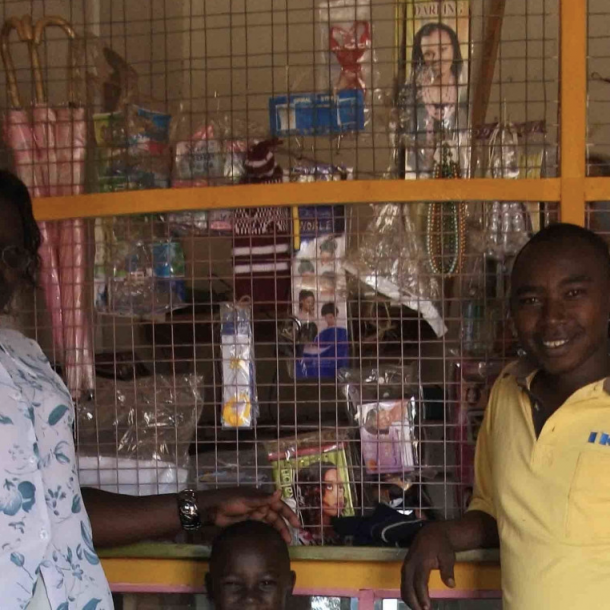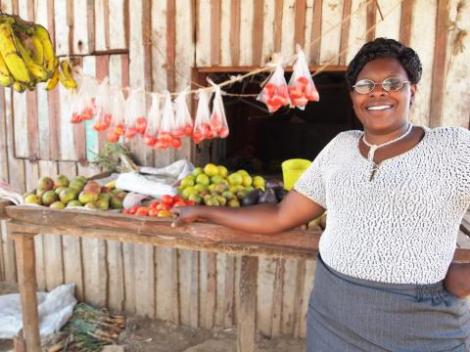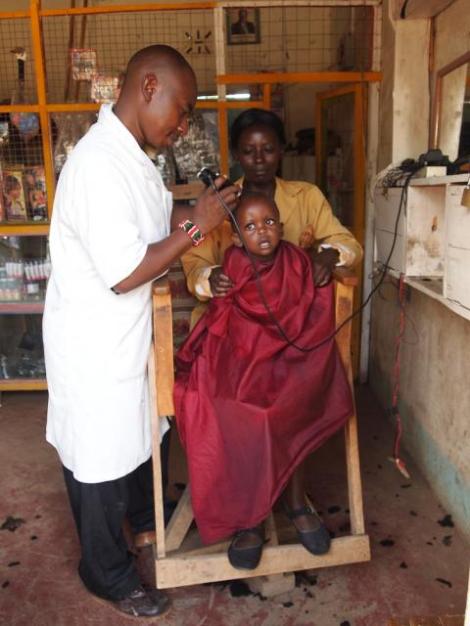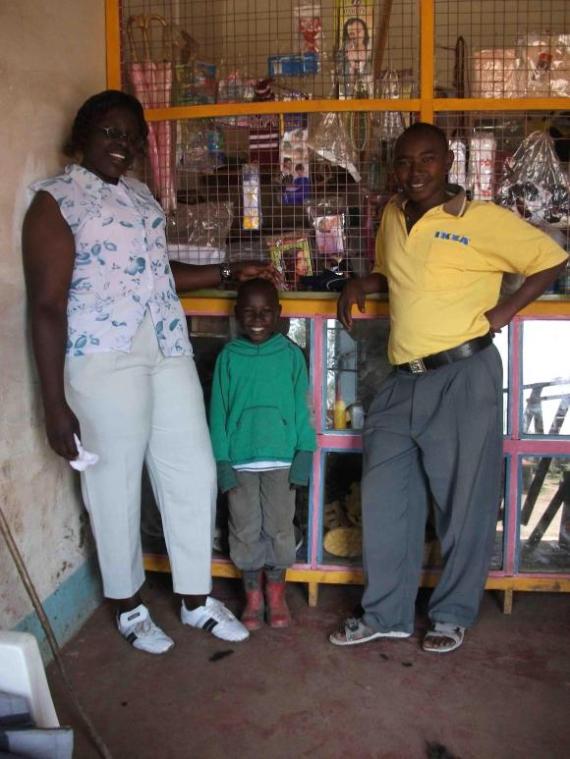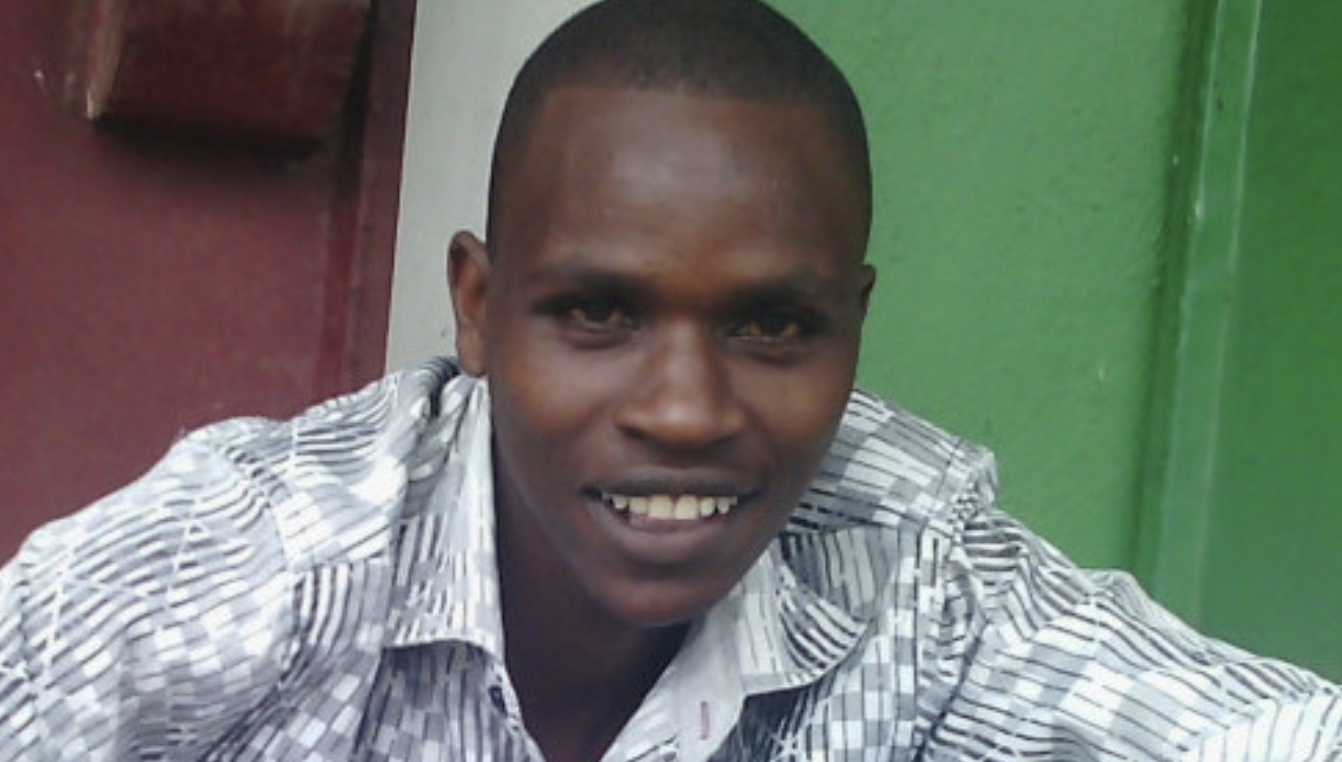By Traci Yoshiyama
“I’m very hardworking,” says Jane Wambui Kabugo without a tinge of boastfulness, but rather a sense of pride. Rightfully so. Jane is 27 years old and already a successful businesswoman, not to mention a mother of two. Jane and her husband own a kinyozi (salon) and a produce stall in the little rural village of Mitimingi, Kenya. As Jane and I speak from her produce stall, we peer across the street at the kinyozi where we can see her husband cutting the hair of a young gentleman. In another minute, Jane gets a customer wanting to buy bananas, evidence that their two businesses are thriving.
The creation of her family’s kinyozi was possible because of Zidisha. Through her first loan of $546, Jane was able to rent a space, buy all the necessary machinery (i.e. shavers, razors), stock her store with hair products and shoes, and even buy two batteries that enable her shop to stay open during the frequent power outages.
While her husband is in charge of styling the men, Jane takes care of the children’s haircuts when not working at her produce stall. We have all heard of children being fearful of haircuts, with scissors too close for comfort and strange noises and smells permeating the air. Jane gestures towards her kind and understanding face, implying this is the answer to the children’s haircut jitters. Although both Jane and her husband have no formal training in barbering, she explains to me that “some courses come from the heart.”
I had found Jane at her produce stall, where she sells vegetables and fruits that she grows mostly on her own farm. She was dressed in smart slacks and a white t-shirt and greeted me with a firm handshake (this I found to be true for all women here – their handshakes are always full-bodied and firm – showing confidence and also warmth). Jane appears to be quite enterprising. She, like most Kenyans, has a very strong desire to improve her lot and works really hard to make sure she and her family have the best that is possible.
Jane used the Zidisha loan and some of her own money to buy a good breed of cow. The cow cost her around $750, but gives around 20 liters of milk per day (at peak capacity), which translates to a monthly revenue of around $180 from the cow. She spends about $60 per month on the cow’s feed and veterinary care, and the remaining $120 per month are her profit.
She has sent her two sons to boarding schools because she feels the quality of education is much better there. She told me that she pays annual tuition of $630 for one of her sons and $350 for the other. This appears quite steep to me, but she wants to make sure her children get the best education and will not compromise on this. She told me she wants one of the sons to be a lawyer and the other to be a doctor. I couldn’t help feeling admiration for her.
Upon my departure, Jane reaches for a banana, the ripest of the bunch, and gives it to me as a gift. Refusing to take my money, she makes me promise to visit again, even extending an invitation to her home. As I make my descent home, I think about Mitimingi, one of the smallest villages I have seen in Kenya, but filled with people possessing the biggest of hearts.
This story was originally posted by Traci Yoshiyama, volunteer Kenya Client Relationship Manager, in July 2012. Since then, Ms. Kabugo has successfully repaid her second loan and has raised a third loan to invest in storage of locally harvested corn and beans, improving food security while adding another stream of revenue to her household. You may read more about Ms. Kabuto in her Zidisha profile page.

